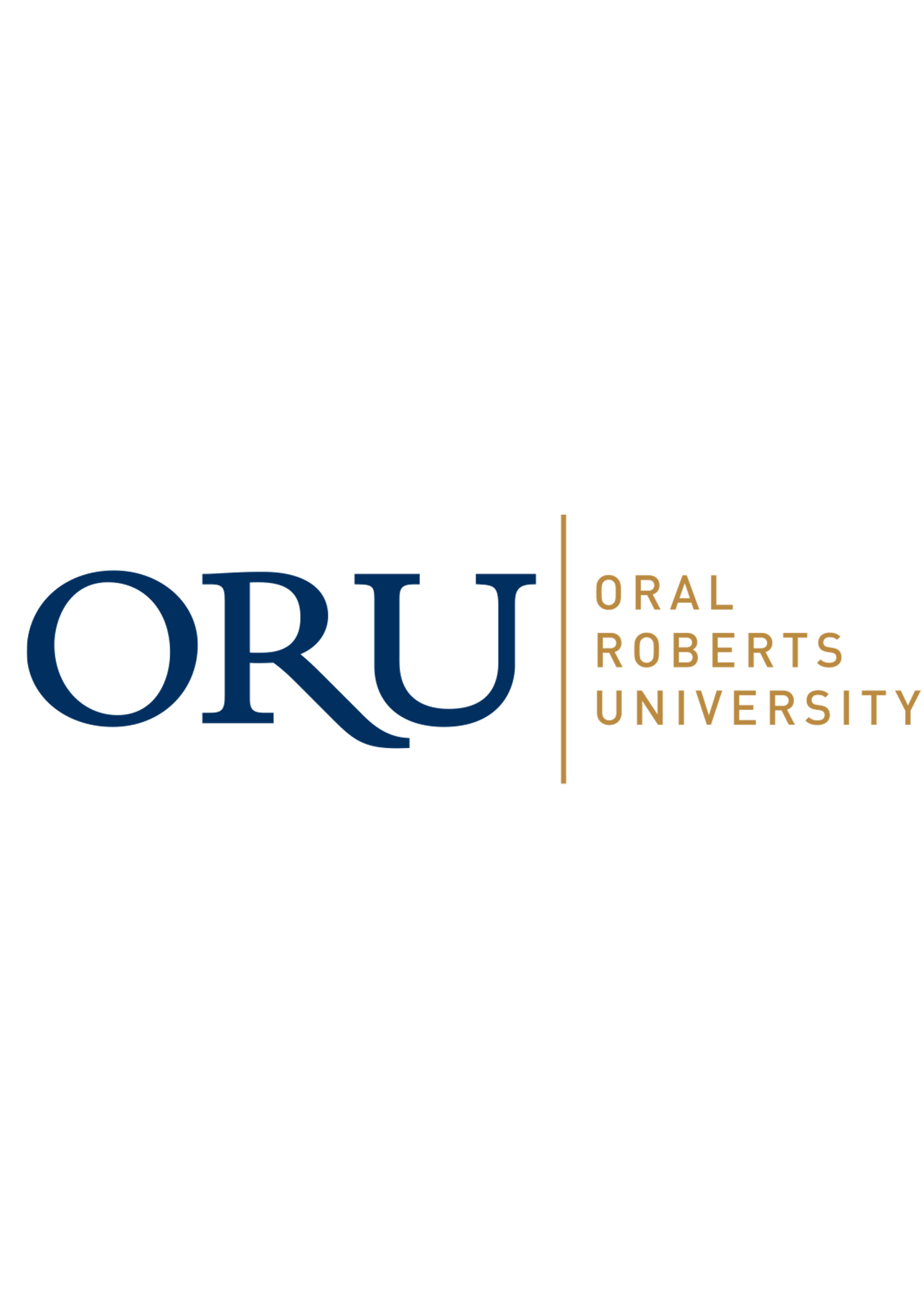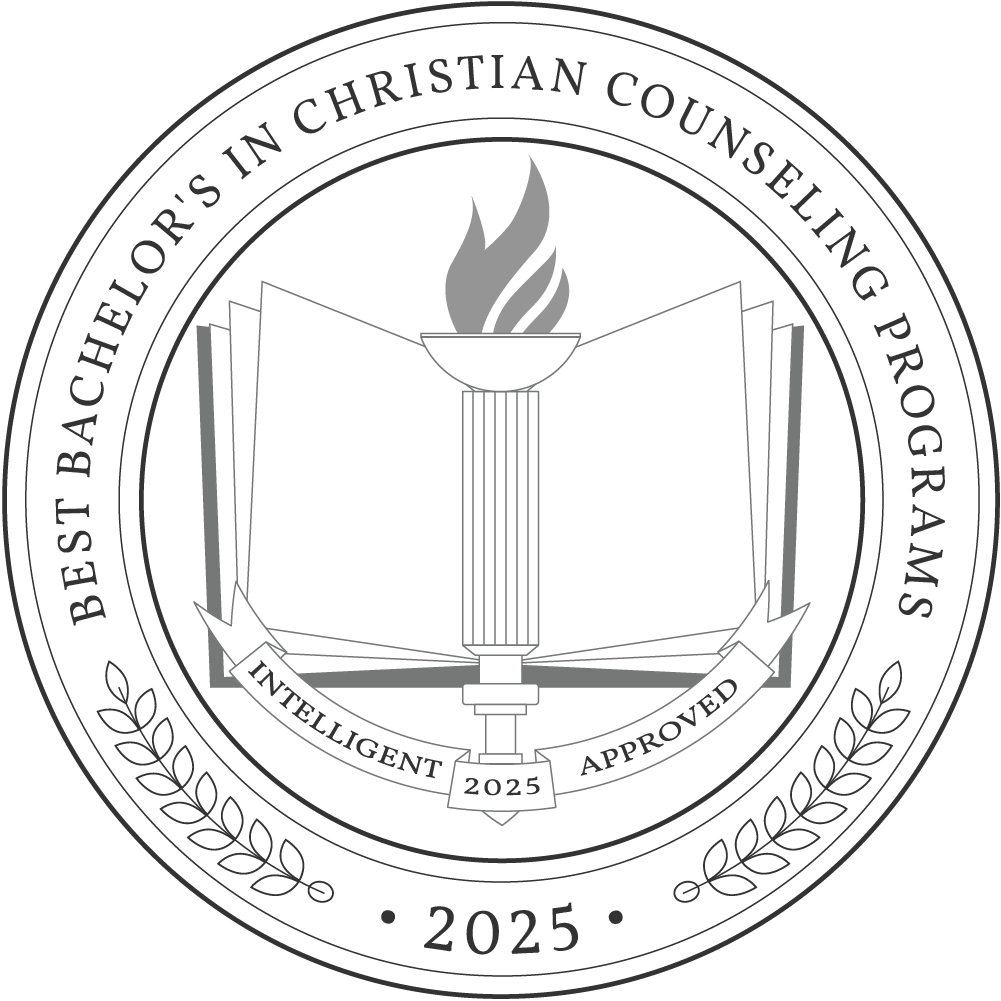If you’re interested in a career as a pastor, missionary, chaplain, or church counselor, a bachelor’s degree in Christian counseling can provide a foundational education in faith-based psychology. Christian counseling programs teach students to connect psychological practices with Bible-based perspectives, allowing them to perform various mental health services in church and secular communities. Tuition and fees for a bachelor’s degree program in Christian counseling cost an average of $27,673 in 2023 ($30,884 with room and board). At private schools, the average cost was $49,320.
Many graduates of Christian counseling programs go on to become substance abuse or mental health counselors, making an average of $49,710 (as of 2022), or social workers, who earn an average of $55,330. If you earn an additional certification, such as a marriage and family therapist (MFT), the average starting salary is $56,570. People who continue their Christian counseling education with doctoral programs can become psychologists, whose starting pay averages $85,330.
Why Trust Us
The Intelligent.com Higher Education Team is dedicated to providing students with independent, equitable school and program rankings and well-researched resources. Our expert-driven articles cover topics related to online colleges and programs, paying for school, and career outlooks. We use data from the U.S. Department of Education’s College Scorecard, the National Center for Education Statistics, and other reputable educational and professional organizations. Our academic advisory team reviews content and verifies accuracy throughout the year for the most current information. Partnerships do not influence rankings or editorial decisions.
- Analyzed over 2,000 national, accredited, and nonprofit colleges and universities
- 800+ rankings pages are reviewed and updated yearly
- Content is informed by reputable sources, surveys, and interviews with academic advisors and other experts
- Over 100 data points are reviewed for accuracy and quality throughout the year, including sources
How we rank schools
Our list features the best Christian Counseling degree programs at top colleges nationwide. Each school featured is a nonprofit, accredited institution — either public or private — with a high standard of academic quality for post-secondary institutions.
We evaluated each school’s program on tuition costs, admission, retention and graduation rates, faculty, reputation, and the student resources provided for online students. We collected data from trusted sources like the National Center for Education Statistics, individual school and program websites, school admissions counselors, and other data sources. Then, we calculated the Intelligent Score on a scale of 0 to 100 based on the following criterion:
Academic Quality:
- Admission rate versus enrollment rate
- Retention rate of students who return after year one
- Accreditation status (regional and programmatic)
- Nonprofit status, both private and public institutions
Graduation Rate
- Overall graduation rate
- Total number of currently enrolled students, including diversity metrics
- Student-to-faculty ratio
Cost and ROI
- In-state and out-of-state per-credit tuition rates and fees
- Required credits to graduate
- Earning potential after graduation
- Availability of federal student loans, scholarships, and other financial aid options
Student Resources
- Available student services for online-only and hybrid programs
- On-campus amenities like tutoring centers and the number of libraries
Read more about our ranking methodology.
Best 2 Accredited Christian Counseling Programs
FiltersInstitution Type
Status
- Intelligent Score
- Alphabetically By University Name
- Acceptance Rate
- Enrollment
- In-state Graduate Tuition
- Out-of-state Graduate Tuition
- In-state Undergraduate Tuition
- Out-of-state Undergraduate Tuition

Oral Roberts University
Intelligent Score: 97.42In-state: $29,700
Out-of-state: $29,700
In-state: $11,052
Out-of-state: $11,052
SAT: 980-1220
ACT: 19-27
$889 - $1,400
On-Campus, Online
Higher Learning Commission
120

Nazarene Bible College
Intelligent Score: 92.26In-state: $23,817
Out-of-state: $23,817
In-state: NA
Out-of-state: NA
SAT: Not Required
ACT: Not Required
$398
On-Campus, Online
Higher Learning Commission
120-128
How to Choose a Christian Counseling Program
Choose your area of study
Though the names of specific degrees may vary, the most common bachelor’s degrees in Christian counseling are a Bachelor of Arts in Christian counseling, a Bachelor of Arts in Christian psychology, and a Bachelor of Arts in pastoral counseling. Depending on the programs you research, you may also see a Bachelor of Science in Christian counseling or Christian psychology.
- A Bachelor of Arts in Christian counseling or Biblical counseling teaches students how to counsel clients with a Biblical perspective rather than a secular psychological lens. It infuses a therapeutic practice with counseling methods rooted in an understanding of the Bible.
- A Bachelor of Arts in Christian psychology combines evidence-based psychological practices with a Christian philosophy. This degree prepares future counselors to handle several secular issues with a Christian mentality.
- A Bachelor of Arts in pastoral counseling is for students pursuing a pastoral or leadership role in a church rather than a clinical setting. These graduates use faith-based practices to counsel congregants or members of the greater community.
- A Bachelor of Science in Christian counseling or Christian psychology applies both a scientific approach and a Christian lens to psychological issues. Students interested in the science of psychology may pursue a B.S. in Christian counseling instead of a B.A.
Once students finish their bachelor’s degree in Christian counseling, they can earn professional certifications to build on their professional skills. Many Christian counselors earn a certification from the Association of Certified Biblical Counselors (ACBC), while counselors seeking secular placements earn an Associate Professional Clinical Counselor (APCC) certification or Licensed Professional Clinical Counselor (LPCC) certification.
Research schools and programs
You’re most likely to find a Christian counseling program at a religious college or university, particularly if it also has a seminary program. Use institutional accreditation agencies such as the Association for Biblical Higher Education and the Higher Learning Commission to find accredited Christian counseling programs. Graduates of an accredited Christian counseling program can transfer their credits to other institutions, making moving between Christian and secular schools or earning a postgraduate degree more straightforward.
Additionally, programmatic accreditation agencies like the Council for Accreditation of Counseling and Related Educational Programs (CACREP) can guide you toward well-rounded, rigorous programs that prepare you for a successful counseling career. Schools accredited by CACREP maintain strict standards in their counseling programs and incorporate traditional methods with modern perspectives.
If you’re planning a career in the Christian church, consider schools with a Biblical counseling department. Institutions that offer Christian counseling programs alongside other psychology degrees are good fits for students planning careers in secular counseling.
Prepare for tests and applications
Requirements for programs at Christian schools may differ from those at secular schools. Some Christian schools require SAT and ACT scores in their bachelor’s degree application process, while others consider them optional. Other application elements like transcripts and minimum GPA vary by institution, so check your school’s admissions website for their requirements.
Even if your chosen school’s application requirements are optional, it’s a good idea to have as many as possible to set yourself apart from other applicants — especially in competitive programs. Letters of recommendation highlight your role in your school and community, while an application essay demonstrates your writing proficiency. Both skills are desirable attributes in a Christian counseling program applicant.
Consider your financial, logistical, and professional needs for a bachelor’s degree program. Discussions with admissions counselors or program representatives can answer your questions about room and board, prerequisites, campus life, chapel requirements, and any other concerns. Take an in-person or virtual tour of a prospective campus, and talk to students, professors, and advisors about how to have the best experience.
Select your program
The best Christian counseling program is the one that fits you best. If your goal is to be a pastor one day, include schools with seminaries on your shortlist. For students interested in bringing a Biblical worldview to a counseling practice, choose a program that offers a combination of lay and secular psychology classes. Many Christian schools require students to sign a Statement of Faith during the admission process, so learn more about your particular school’s beliefs before signing on.
Determine how you’ll pay for your degree
Create a budget to estimate the cost of your Christian counseling degree over four years. Include items like tuition, admissions fees, educational materials, transportation, and room and board if you plan to live on campus. If you have money saved for college, apply the total amount and see how much more financial assistance you will need.Though you’ll find most Christian counseling programs at private religious schools, you can still use federal student aid to pay for educational expenses, as long as the school is accredited. Fill out the Free Application for Federal Student Aid (FAFSA) to see how much aid you qualify for, and reach out to your prospective school to ask about scholarships and grants that you don’t need to pay back.
What Can You Expect From a Christian Counseling Program?
Unlike a counseling degree from a secular program, a bachelor’s degree in Christian counseling uses a Biblical lens to examine psychological patterns in an individual or a larger society. Students in Christian counseling programs study for four years in a variety of settings, including lecture halls, discussion groups, and clinic internships, to gain knowledge and apply their newfound skills.
Potential courses you’ll take in a Christian counseling program
- Theology: General theology courses take students through the study of the Bible, religious traditions, Christian values, and the experience of faith. Theology curriculum often addresses other world religions and their core beliefs.
- Principles of Psychology: Students learn the basics of brain anatomy and physiology, mental processes, developmental psychology, and neuroscience. Some psychology classes may address neuroscience through a Biblical perspective, while others rely on the scientific method.
- Biblical Counseling: This course applies the principles of the Bible to counseling. Students embark upon case studies and internships as they get closer to finishing their degrees.
- Biblical Hermeneutics: Focusing on interpretations of the Bible, a hermeneutics course trains future counselors and pastors to examine their own understanding of Biblical text. It covers the four major types of Biblical hermeneutics — literal, allegorical, anagogical, and moral — as they relate to real-world issues.
- Social Work: Students take a holistic view of counseling, particularly in communities of socially vulnerable people. They apply the teachings of the Old and New Testaments to the fields of mental health, substance abuse, and family attachments.
Christian Counseling Degree Frequently Asked Questions
How do I apply to a Christian counseling degree program?
Check your desired school or program’s website for specific application requirements, including the application deadline. In general, letters of recommendation and an original personal essay are part of the admissions process, along with a minimum GPA and test scores at some schools.
Some Christian schools require a professed belief in the Christian faith, while others admit applicants from different faith backgrounds. Contact the school’s admissions office for more details or to clarify requirements.
How much does a Christian counseling degree cost?
In 2023, the average tuition and fees for a bachelor’s degree was $27,673. When you add room and board for students planning to live on campus, it rises to $30,884. The average cost for private Christian schools in 2023 was $49,320. If cost is a prohibitive factor for you, talk to your school’s financial aid office for advice.
How long does it take to earn a Christian counseling degree?
A Christian counseling degree requires 120 credit hours, which usually takes four years for full-time students to complete. If you participate in a part-time bachelor’s program, your timing may be longer, depending on how many credits you take at a time. Additionally, some schools may offer accelerated programs if you’d like to earn your degree in less than four years.

